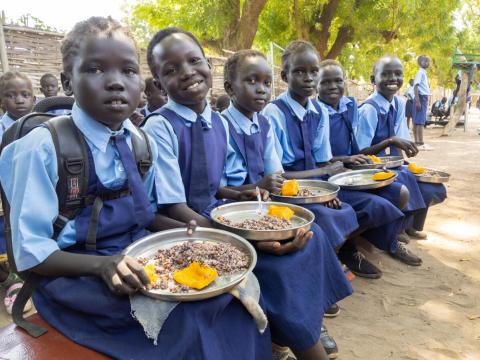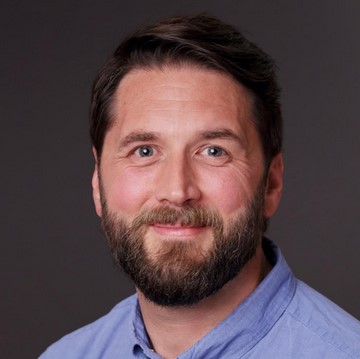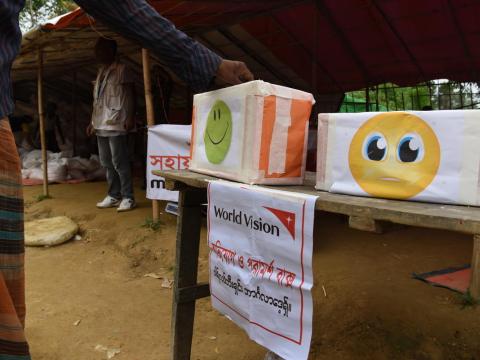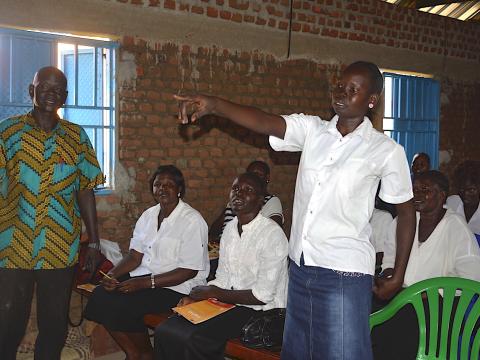
Lighting the fire of education
By Maurice Sadlier, Programmes Director, World Vision Ireland
“How much better to get wisdom than gold, to get insight rather than silver!” These words from Proverbs 16:16 struck me on my last visit, just before lockdown, to South Sudan.
The sentiment of the verse came through in discussions with parents, teachers and community members, highlighting over and over the importance of education for South Sudan’s children.
South Sudan is the world’s newest country, born out of a long and bloody conflict. Finally becoming an independent state in July 2011 did not bring peace to the South Sudanese people, as within two years a civil war had erupted. And while there have been recent advancements with a peace deal and a government of national unity, South Sudan remains an extremely fragile context.
Nearly 40% of South Sudan’s 10 million people have been forced to flee their homes; approximately 1.7 million of them remain displaced within South Sudan and 2.1 million others have sought refuge in neighbouring countries. Despite the peace process progress many people I met do not feel it safe to return home yet.
While they wait for peace and a chance to return home and rebuild their lives, World Vision, with support from a number of governments and supporters, especially Irish Aid, has been implementing education and child protection activities. With more than two million children out of school, and an astonishing 30% of schools damaged, destroyed occupied or closed, our education programme in Melut, Upper Nile State focuses on providing safe learning spaces and on providing quality education.
On my first evening in Melut, watching the River Nile wind its way past, it easy for a minute to forget where I was, but a glance to the left showed the vast Dengtoma Camp for internally displaced people. Sitting there earlier that afternoon I had spoken with teachers, members of parent-teacher committees and parents of children. Many of them had walked more than two weeks from their homes in search of safety, carrying what they could manage. As a development practitioner I am well aware of the multiple benefits of education however sitting there I wondered if they really thought investing money in education was the correct thing to do given all their other, life-threatening and urgent needs.
I needn’t have worried. Sitting under a tin roof, melting in 400C heat with 50 or so camp residents, I heard again and again the appreciation for and importance of the education work. There are very few things in life that can never be taken away and education is one of those. Parents and teachers who had lost almost everything told me that: “education is the one thing that cannot be taken from us”, “when we have to leave here the one thing we know we will have is our children’s education”. The parents I met wanted wisdom and insight over silver and gold despite the enormous needs.
The next morning, we were back at Dengtoma to visit one of the primary schools. Formerly a collection of grass buildings, with our support they were now corrugated-iron classrooms that, while still temporary given they were in a camp, were more weatherproof than before. We heard from three young women who read out poems about the need for equality and inclusion, about how it would only be when men and women were treated equally that South Sudan would be free for all.
Achol’s poem Our Country, Our Pride opened with the line: “This land full of brave and intelligent people.” She delivered a passionate plea to the leaders in South Sudan, asking for people to “sharpen the pen not the gun” so the children of South Sudan could have a future. Her final lines asked:
“When will be proud of our nationality,
When will we sing our national anthem with happiness
Let us not destroy our country because of today, it will be ours tomorrow.”
This is why education is important. The Irish poet William Butler Yeats is often credited with the words “Education is not just the filling of a pail, but the lighting of a fire” and this is what was happening in South Sudan – providing education is not just teaching children to read and write but is bringing about social change, enabling the next generation to hold government to account for their rights.
Maurice is the Programmes Director for World Vision Ireland. Follow him @mauricesadlier


